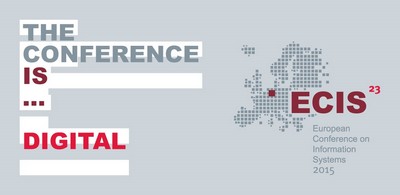Abstract
IT consumerization or bring-your-own-device (BYOD) behavior, i.e., the use of private devices within organizational boundaries, is steadily increasing. Despite potential benefits, organizations are struggling to keep up with this development since a variety of risks, uncertainties, and potential costs are related to the use of private devices within the enterprise. Potential negative consequences are security breaches due to employees’ lack of security measures or increasing coordination efforts for the IT department. While plenty of practitioner literature already exists, there is still a lack of scientific research. Especially theoretical foundations are lacking regarding organizations’ decision processes underlying the implementation of BYOD policies, outcomes such as IS service quality, and the role of trust as an alternative to organizational and technical control mechanisms to minimize the risks associated with BYOD. Based on organizational trust literature, BYOD studies, and argumentations, we conclude a model of the influence of trust and risk perception on BYOD policies and outcomes. As a next step, we suggest a quantitative survey among Chief Information Officers (CIOs) to test the model. We conclude our study by outlining potential contributions to theory by integrating theories on organizational trust, IT risks, and IS service quality in the context of BYOD.
Recommended Citation
Ortbach, Kevin; Walter, Nicolai; and Öksüz, Ayten, "Are You Ready to Lose Control? A Theory on the Role of Trust and Risk Perception on Bring-Your-Own-Device Policy and Information System Service Quality" (2015). ECIS 2015 Research-in-Progress Papers. Paper 2.
ISBN 978-3-00-050284-2
https://aisel.aisnet.org/ecis2015_rip/2


